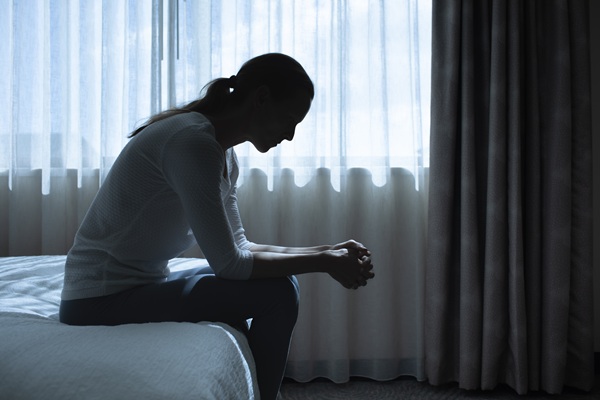When Ketamine Therapy is Recommended for Depression Treatment

Traditional treatments may not always work when it comes to treating depression, in which case a different option like ketamine therapy may be the right choice. Whether it is mild or severe depression, our brains' state is important to determine how effective the chosen treatment will be. In some cases, our brains may not respond well to traditional treatment options, or it may be that the depression is simply too severe for standard oral antidepressants to do the job properly. Fortunately, there are new, more effective types of drug therapy available.
It's important to know all your options when getting treatment for depression, and that's why we want to illustrate the effective nature of ketamine in treating depression, what ketamine is, and how effective it is at treating depression.
What is ketamine?
Originally, ketamine was used as a powerful surgical anesthetic as when it is used; it blocks pain receptors. It first began being used as an anesthetic for animals in the 1960s before receiving approval to be used for humans in 1970
It wasn't until years later that the same drug was administered to a person who had attempted suicide due to severe depression. Reports claimed that the person immediately began showing signs of changed behavior, including not wanting to commit suicide and feeling less depressed.
This led to the eventual reevaluation of the drug, and it became FDA-approved to treat depression in a clinical setting.
Ketamine therapy works differently than typical antidepressants because it immediately changes brain chemistry. Most patients report feeling euphoric immediately after taking the drug, typically lasting a couple of hours or less. This feeling is then followed by enhanced mood and less depressive tendencies.
Over time it is believed that ketamine helps to rebuild synapses in the brain that help parts of the brain communicate with each other. In patients with depression, these synapses are decreased, leading to depressed behavior.
When is this type of therapy used?
Ketamine is not a standard depression treatment and isn't considered usable in all cases. However, it has shown remarkable effectiveness for cases that it is prescribed for. Because of the nature of the drug to become addictive or be misused, ketamine is prescribed almost exclusively for patients with treatment-resistant depression.
Treatment-resistant depression is defined as depression that has shown no changes when taking at least two or more standard antidepressant drugs. Ketamine is used in conjunction with oral antidepressants and has a high rate of success.
Contact your psychiatrist about ketamine today
If you or someone you know is suffering from depression and their current medication isn't working, it might be time to contact a psychiatrist who can prescribe ketamine therapy. No one should have to live with depression, and this may be a solution for you. Learn more about your options so you can get on a path toward mental wellness.
Request an appointment here: https://futurepsychsolutions.com or call Future Psych Solutions at (803) 335-5232 for an appointment in our Columbia office.
Check out what others are saying about our services on Yelp: Ketamine Therapy in Columbia, SC.
Related Posts
Post-traumatic stress disorder PTSD treatment continues to evolve, especially for individuals who do not find enough relief with traditional talk therapy or standard medications alone. PTSD affects the brain's stress circuits, mood regulation, and sleep, which can make daily life feel overwhelming. Modern interventional psychiatry focuses on advanced therapies that help the brain reset and…
Depression can be difficult to manage, particularly for those who do not respond to traditional antidepressants and other methods. In these cases, spravato for depression offers a new and effective psychiatric treatment option. This FDA-approved medication, also known as esketamine, is administered as a nasal spray under medical supervision. It has shown remarkable results for…
Treatment-resistant depression can leave patients feeling stuck, even after exploring different medications and approaches to therapy. The good news is that TMS therapy, or transcranial magnetic stimulation, offers a new way forward. This innovative and noninvasive psychiatric treatment aims to restore healthy communication between brain regions responsible for mood, emotion, and focus, providing a path…
Ketamine therapy is an effective treatment method for treatment-resistant mental conditions, such as depression, anxiety disorders, and post-traumatic stress disorder (PTSD). However, common misconceptions may prevent individuals from choosing this treatment and obtaining the relief they need. Our team is here to dispel the three most common myths surrounding ketamine therapy so you can make an…


